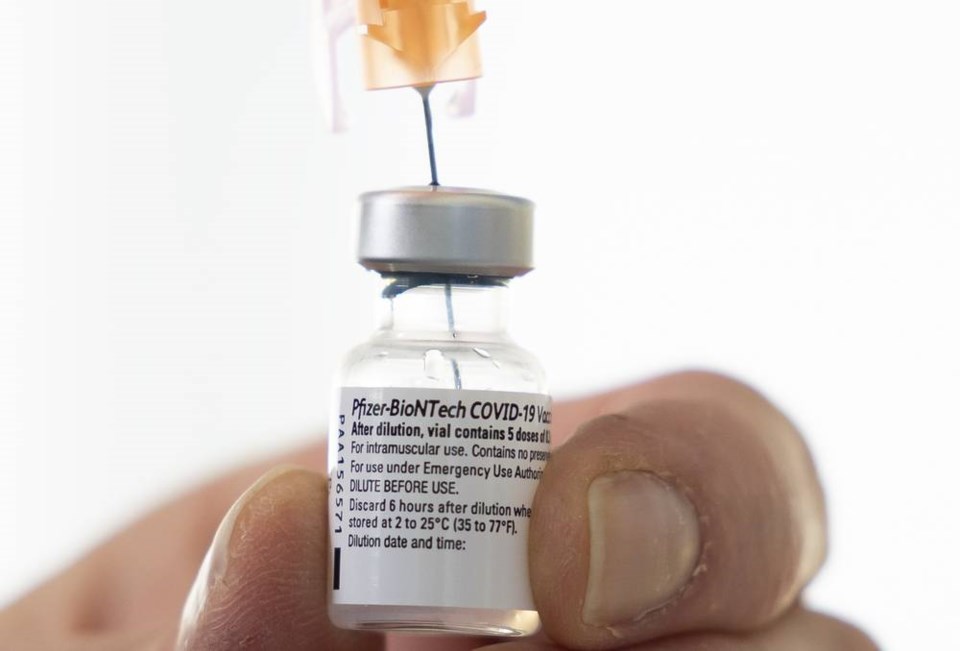A commentary by an associate professor in the Faculty of Law at the University of Victoria.
The University of Ottawa announced on Tuesday that all faculty, staff, students and visitors need to show proof of vaccination status to access the campus this fall. It is time for the University of Victoria to do the same.
My colleagues Debra Parkes and Carissima Mathen wrote a persuasive op-ed (published in the Vancouver Sun on Aug. 2) debunking the notion that the Canadian Charter of Rights and Freedoms protects the right of the unvaccinated to move, unfettered, in the public realm.
I agree. And I would also push their analysis one step further, to argue that the values embedded in our pre-eminent rights document also protect our collective right to health.
On July 29, the deputy minister of advanced education wrote to B.C. universities, telling them that they were not permitted to mandate masks or vaccinations on their campuses without permission of our provincial health officer.
In the wake of this decision, our faculty association and others have called on our government to affirm the autonomy of our employers to ensure a healthy and safe campus. This call includes the ability of B.C. universities to do what is now happening in Ontario, to introduce principled vaccine and mask mandates, and ways of delivering courses, that are in the best interests of our community.
If it is fear of a Charter challenge by anti-vaxxers/maskers that stops our government from this action, that has to be set aside.
Putting how our universities make the key decisions of collective health and safety under Charter scrutiny, in this manner, is to accept the individualizing framework that a focus on freedoms has centred. Arguably, it elevates the freedoms of those who are electing not to vaccinate over the needs of the community, broadly cast.
Fear-driven inaction ignores what lies at the heart of human rights jurisprudence domestically and internationally, that the realities of a free and democratic society mean our fundamental freedoms are subject to reasonable limits. In the UN’s International Covenant on Civil and Political Rights, for example, the language of limitations specifically contemplates that when it is necessary to protect “public health” the rights guaranteed in that venerated Covenant can be restricted.
I understand the PHO’s aim. The decision that proof of vaccination is not a requirement for return to the classroom this fall is arguably made with attention to broad questions of societal impacts, privacy and the collective desire to emerge out the other side of this pandemic.
But this decision is not made in the public interest; health equality should take priority over individual privacy and related freedoms.
The current framework of decision-making puts the needs of those who have elected not to vaccinate at the centre and moves those who are affected by that choice — the immunocompromised, children under 12, and those with underlying health conditions — to the margins.
In the balance of the many competing interests at play here, the ground is shifting. The dangers of the Delta variant and the emerging statistics on the impact of the virus on the unvaccinated is staggering.
In the face of what they now know, universities must be able, as our colleagues at the University of Calgary Faculty of Law have argued, to take the brave and clear step to set the health and safety of our community at the forefront.
Those who cannot vaccinate for reasons tied to principles of human rights should be accommodated. But those who elect not to vaccinate should be asked to accept the consequences of that decision.
The University of Victoria should centre us, their community of educators, administrators and learners, to enable a site of higher education that does not put its members at risk in the simple act of coming to our place of work and study.
We have followed Dr. Bonnie Henry’s guidance for these past 18 months. We have been calm, we have been kind, and we have followed her lead in order to be safe.
But now we need to be fierce. And we ask her to do the same.
The pandemic has shaped the world we live in, transforming what it means to grieve, shifting our relationship to work, and in many families causing dislocations and losses that are irreparable.
The burdens of this time have rested on the shoulders of some much more than others. But our world is also at risk due to climate change, racial inequities and the ongoing genocide of colonialism, alongside a litany of pressing social, political and legal issues.
Those questions demand a university that is rising to the challenges, innovating, and putting its incredible resources into problem-solving of the highest measure.
To return fully to this integral work, in our research, and crucially in our teaching, we need an environment that offers faculty, staff and students, a real opportunity to thrive.
The capacity to mandate vaccinations for return to campus, executed with care, is one critical and human-rights-protected step in enabling our safe return to focus on the work that truly matters.
- - -
To comment on this article, write a letter to the editor: letters@timescolonist.com



